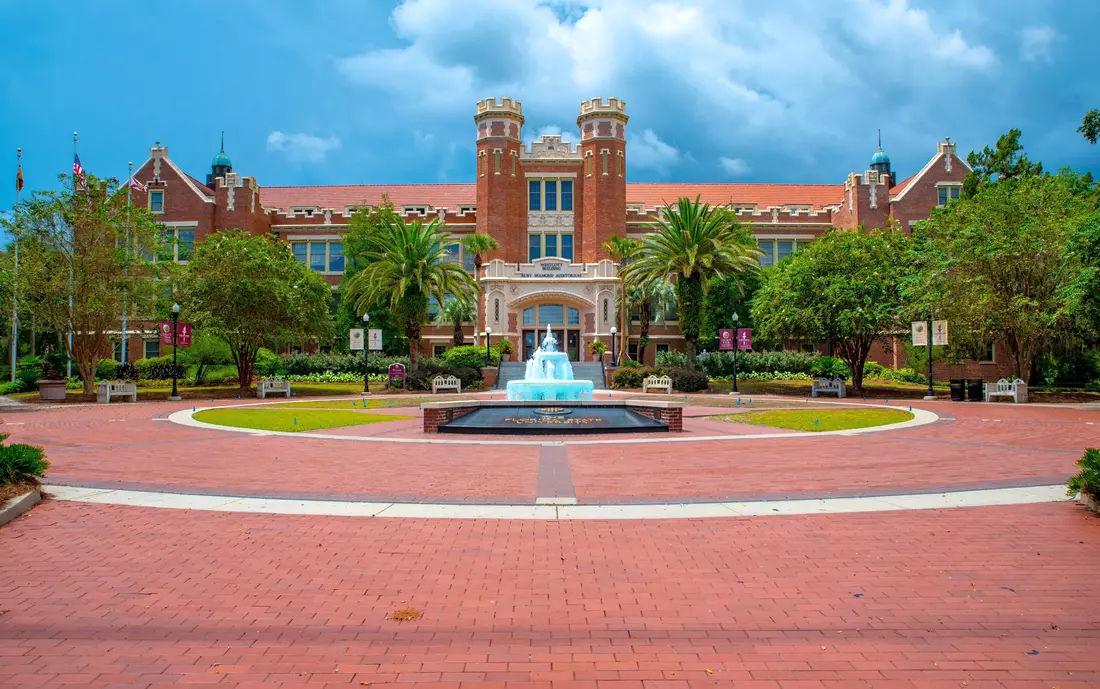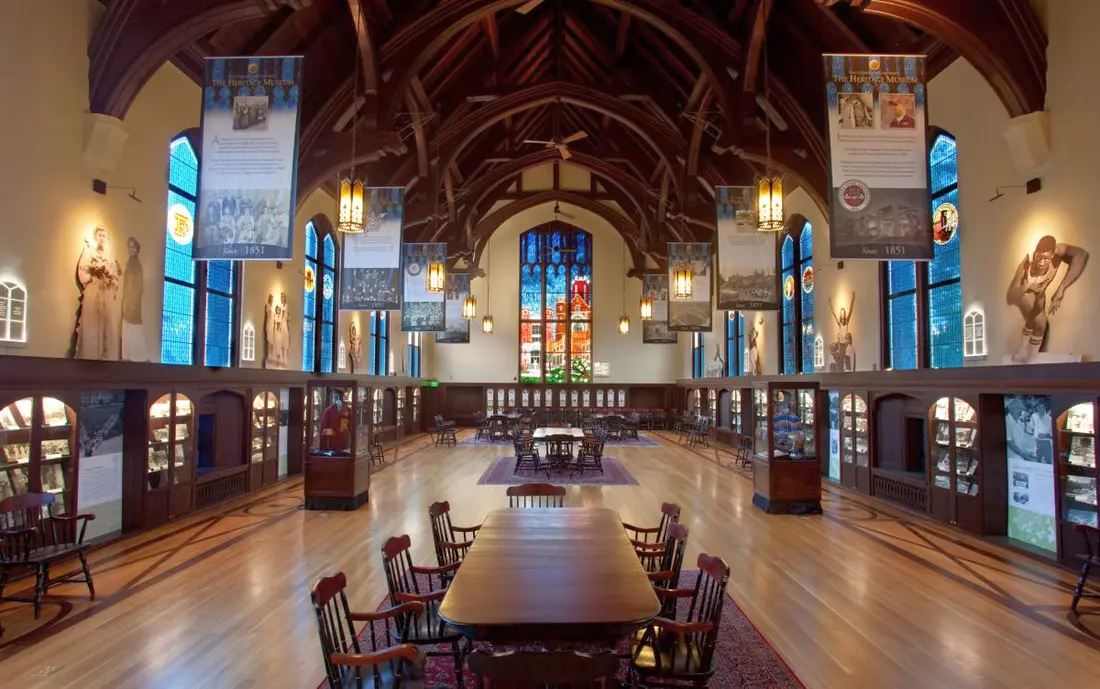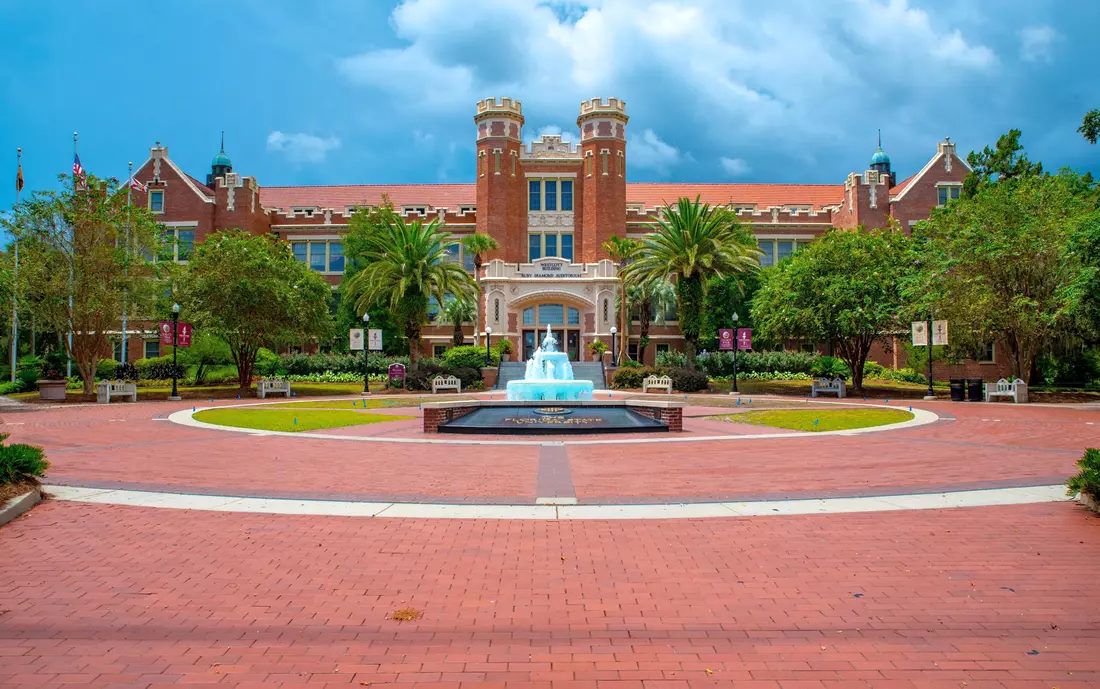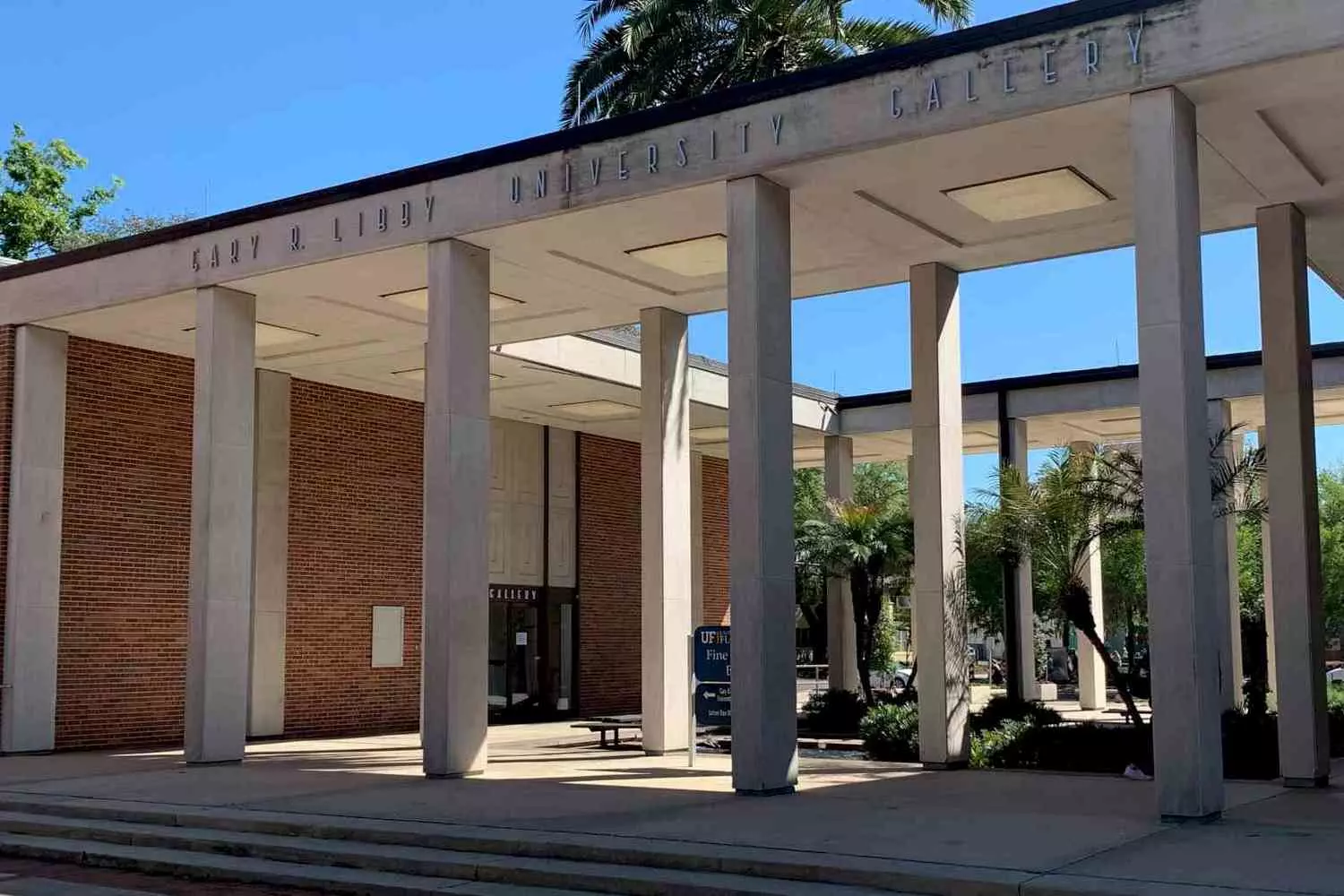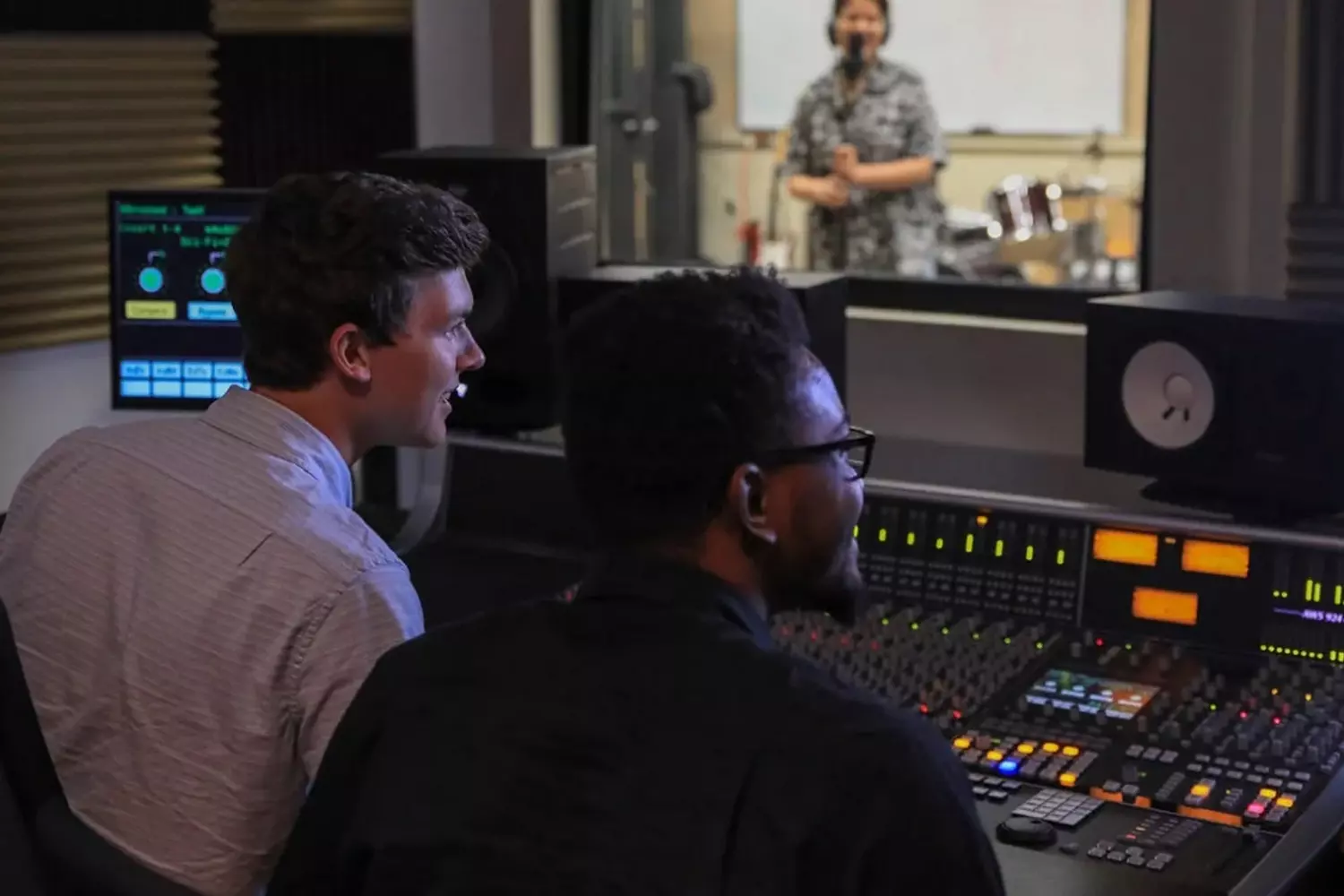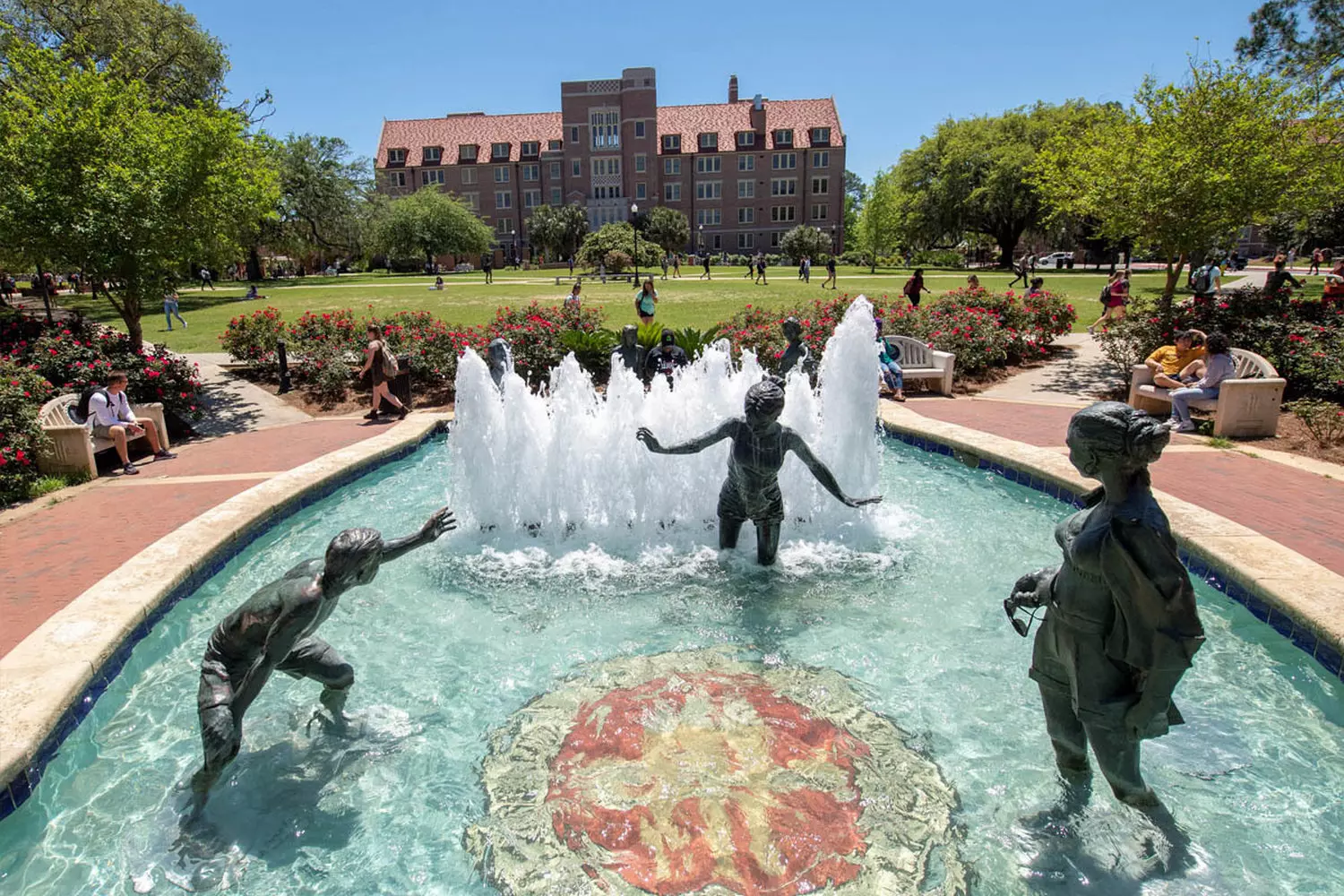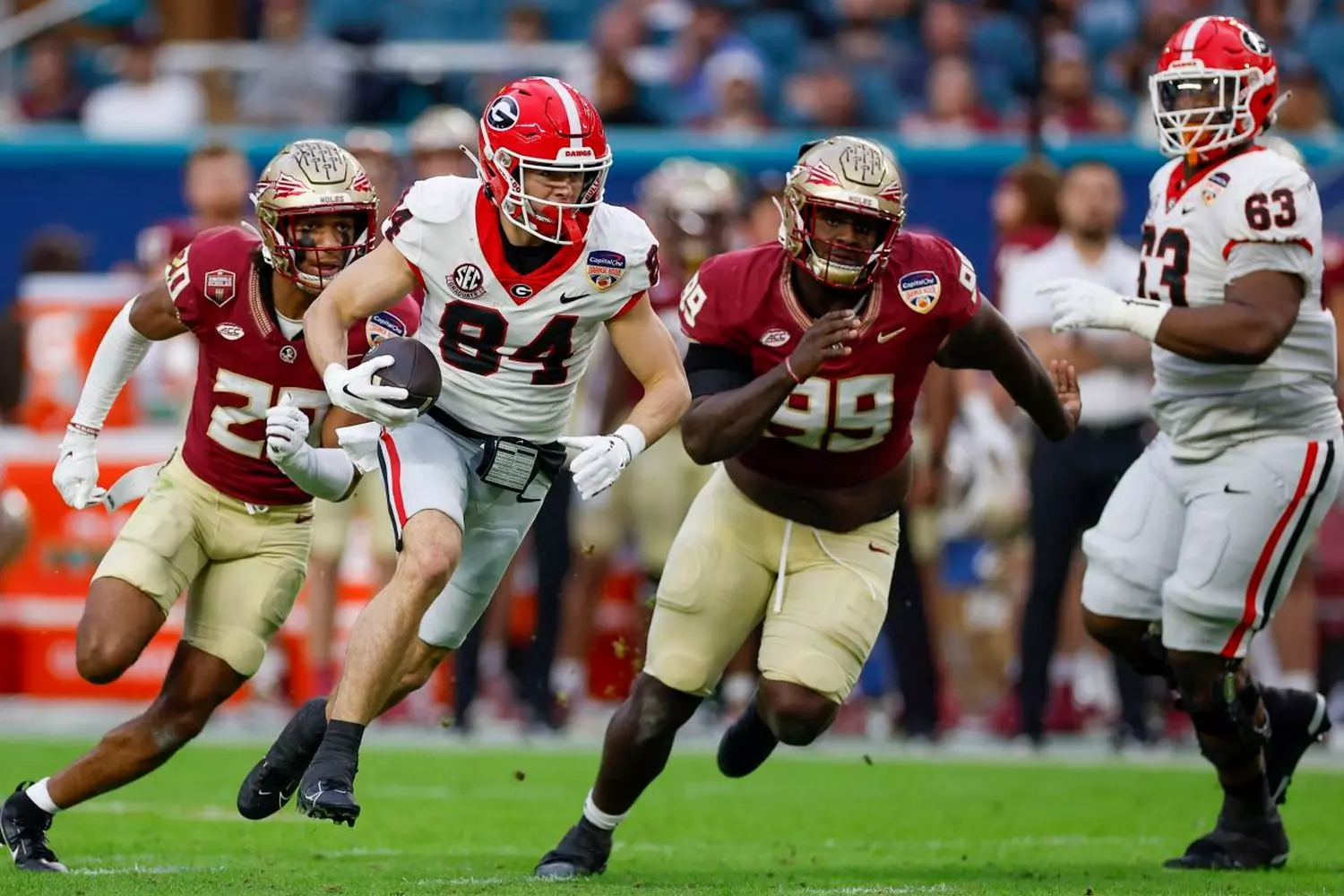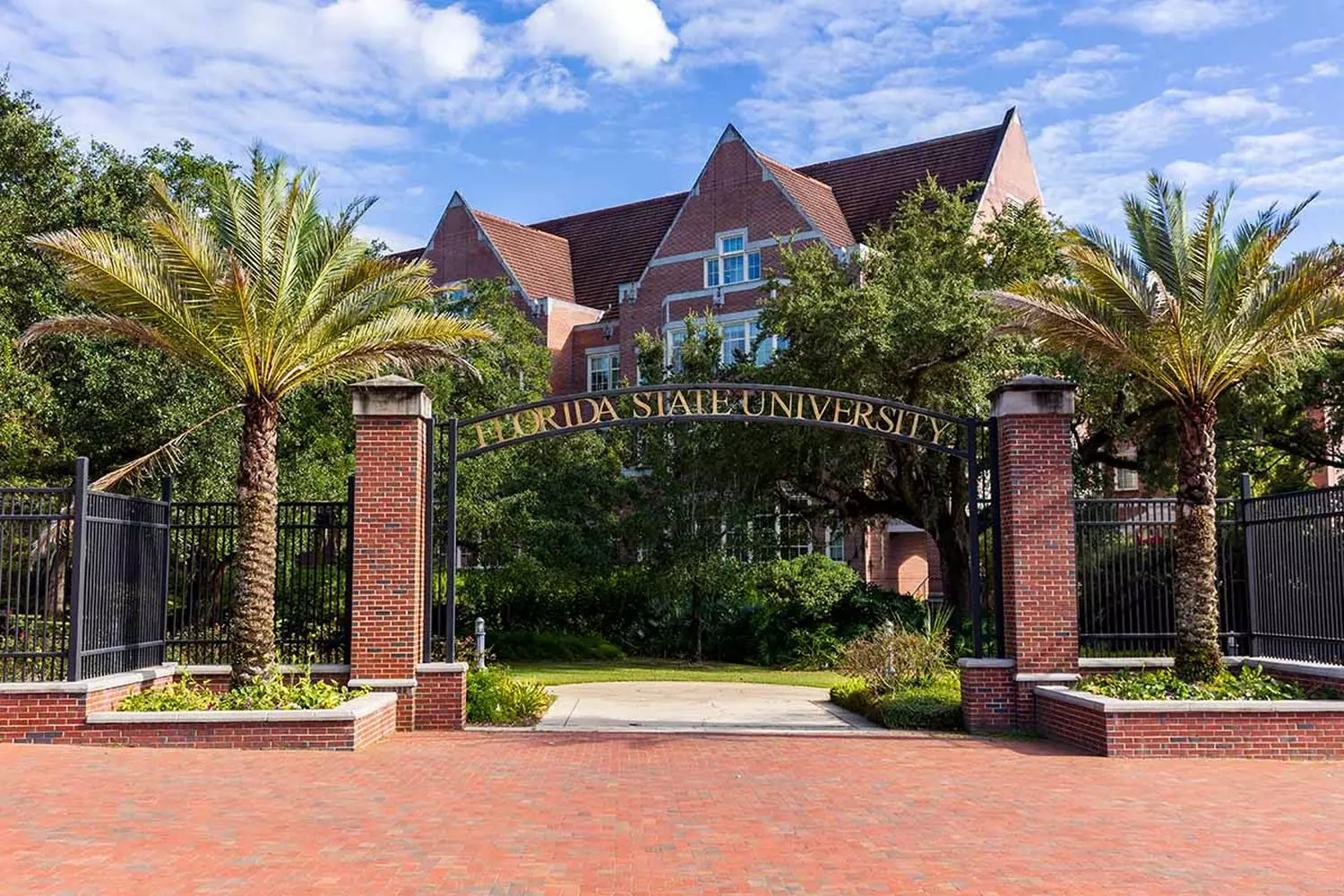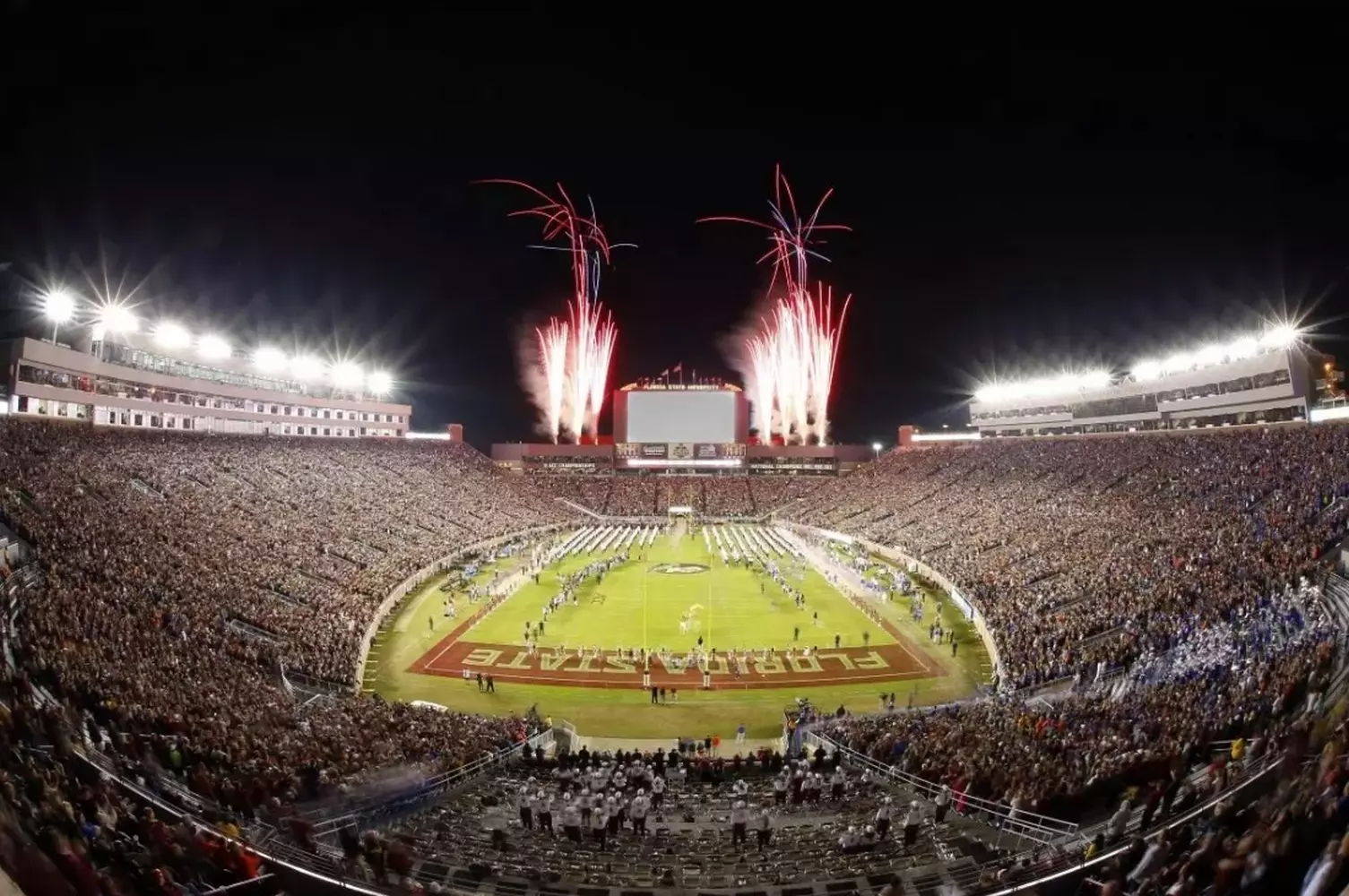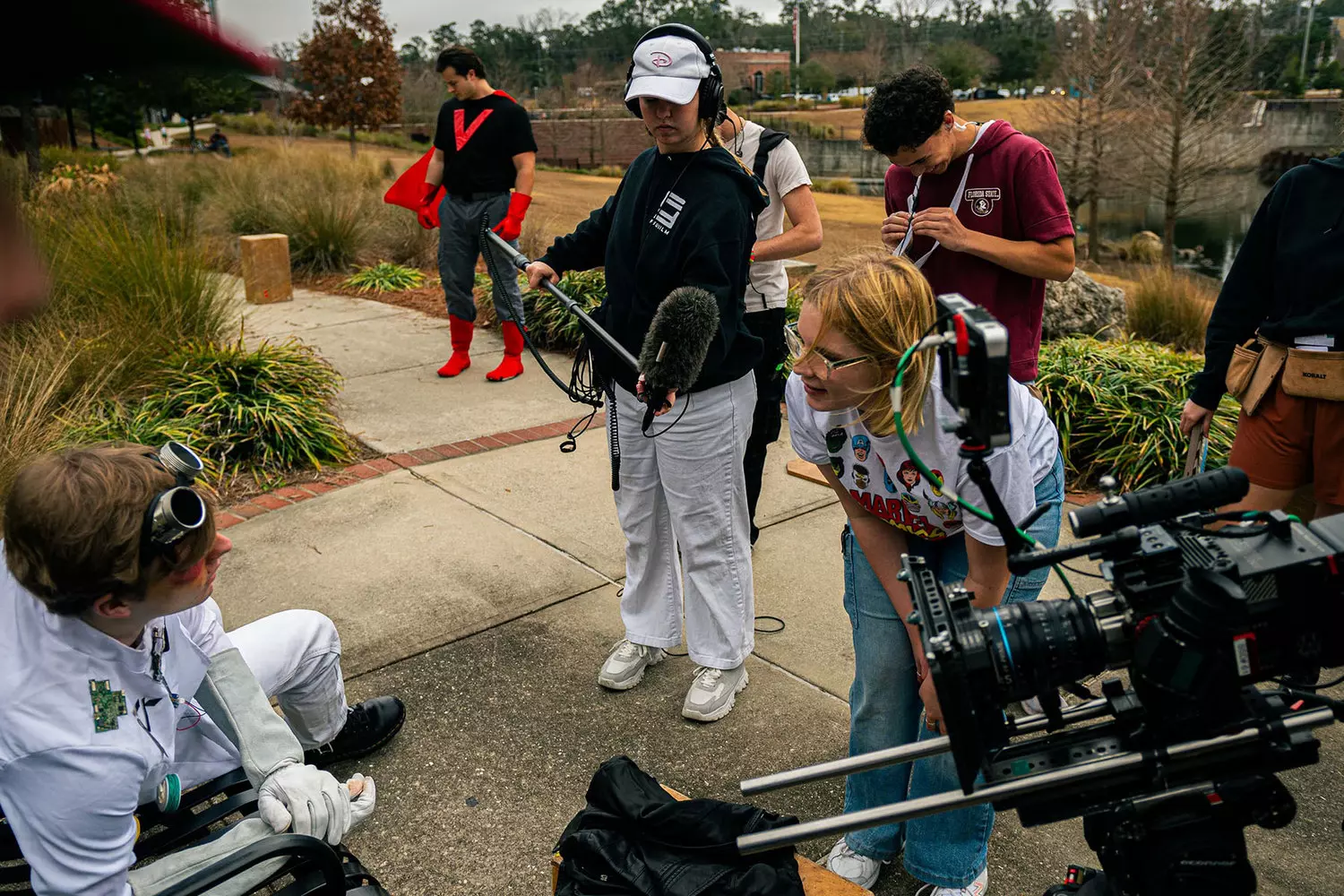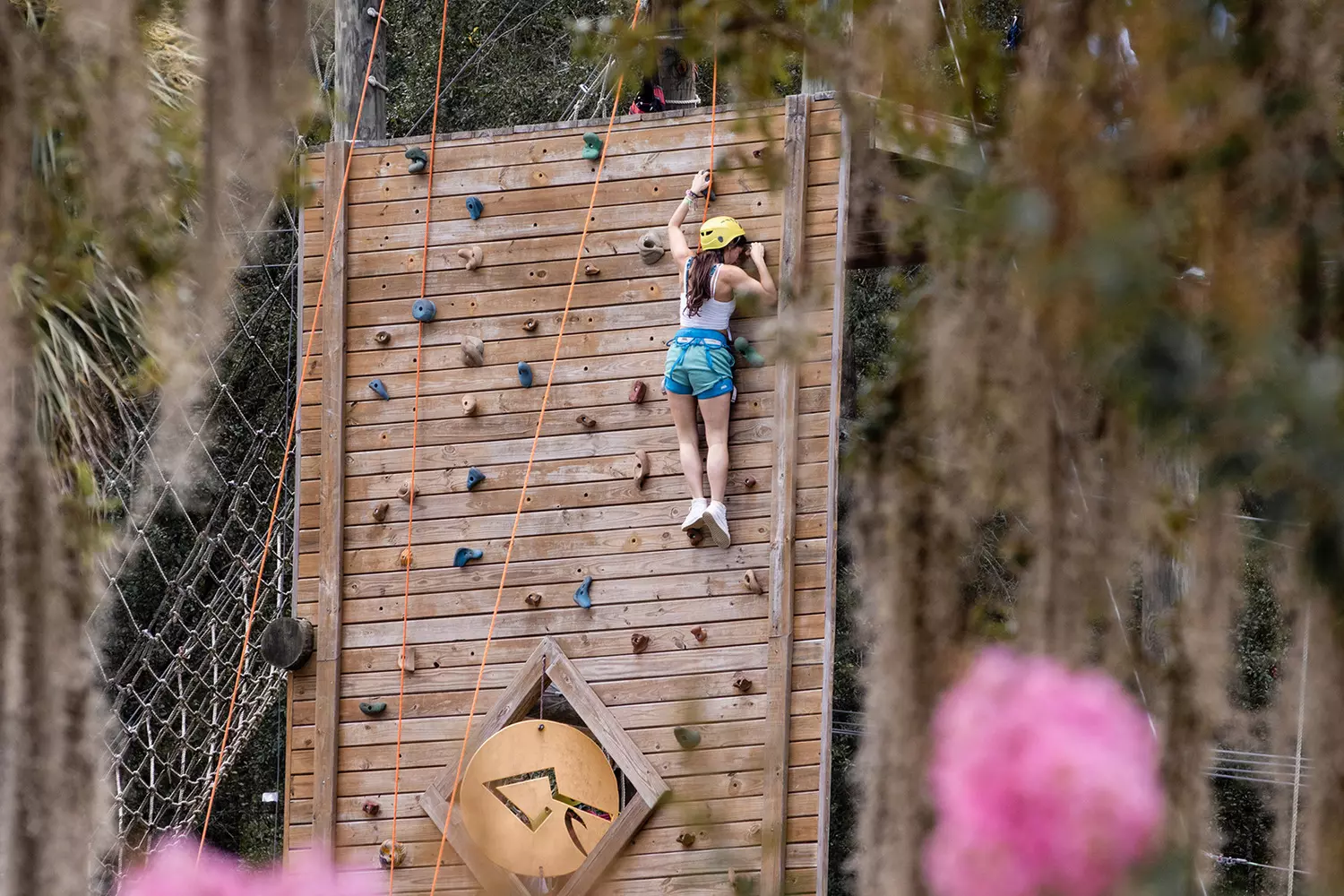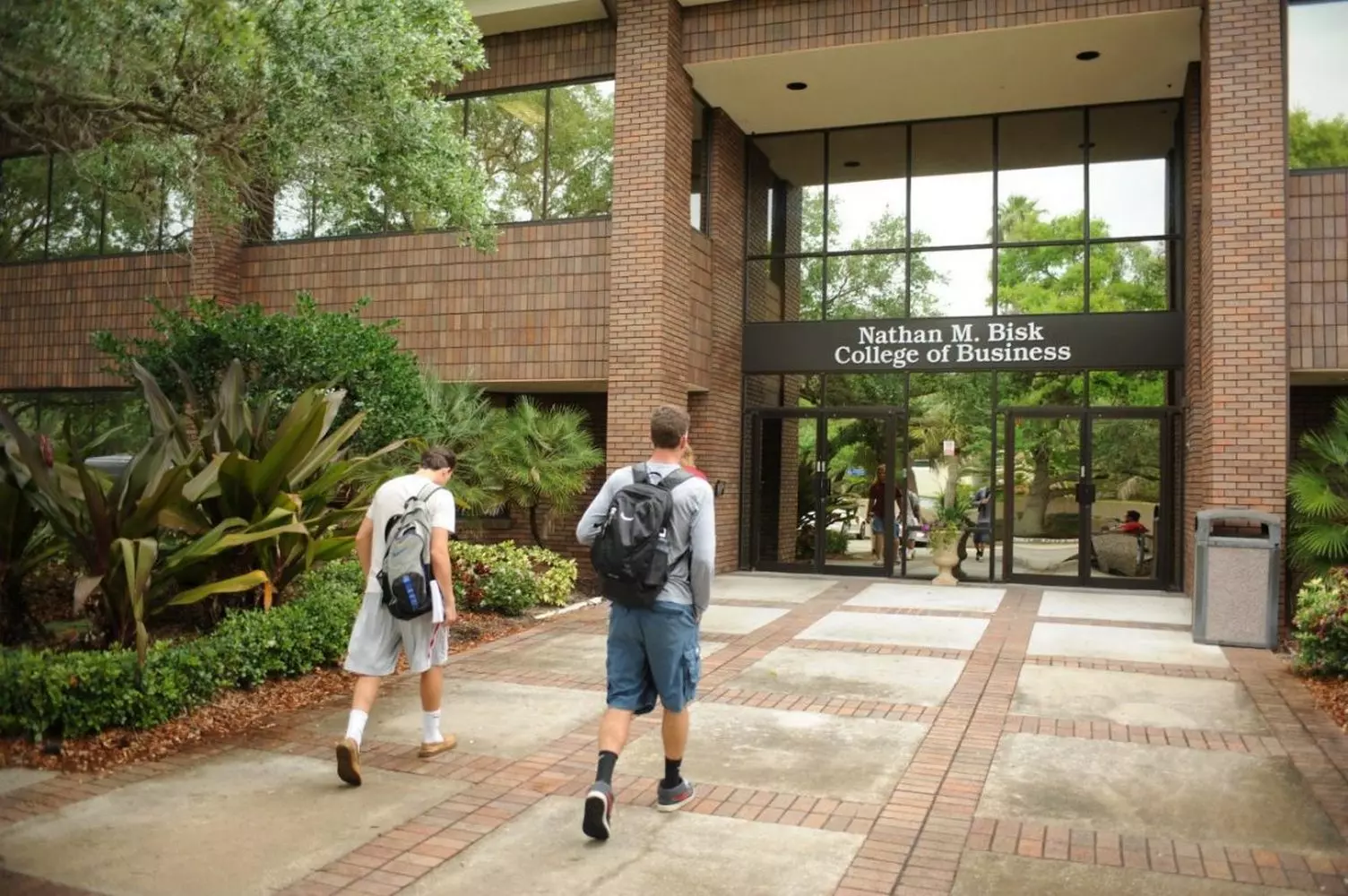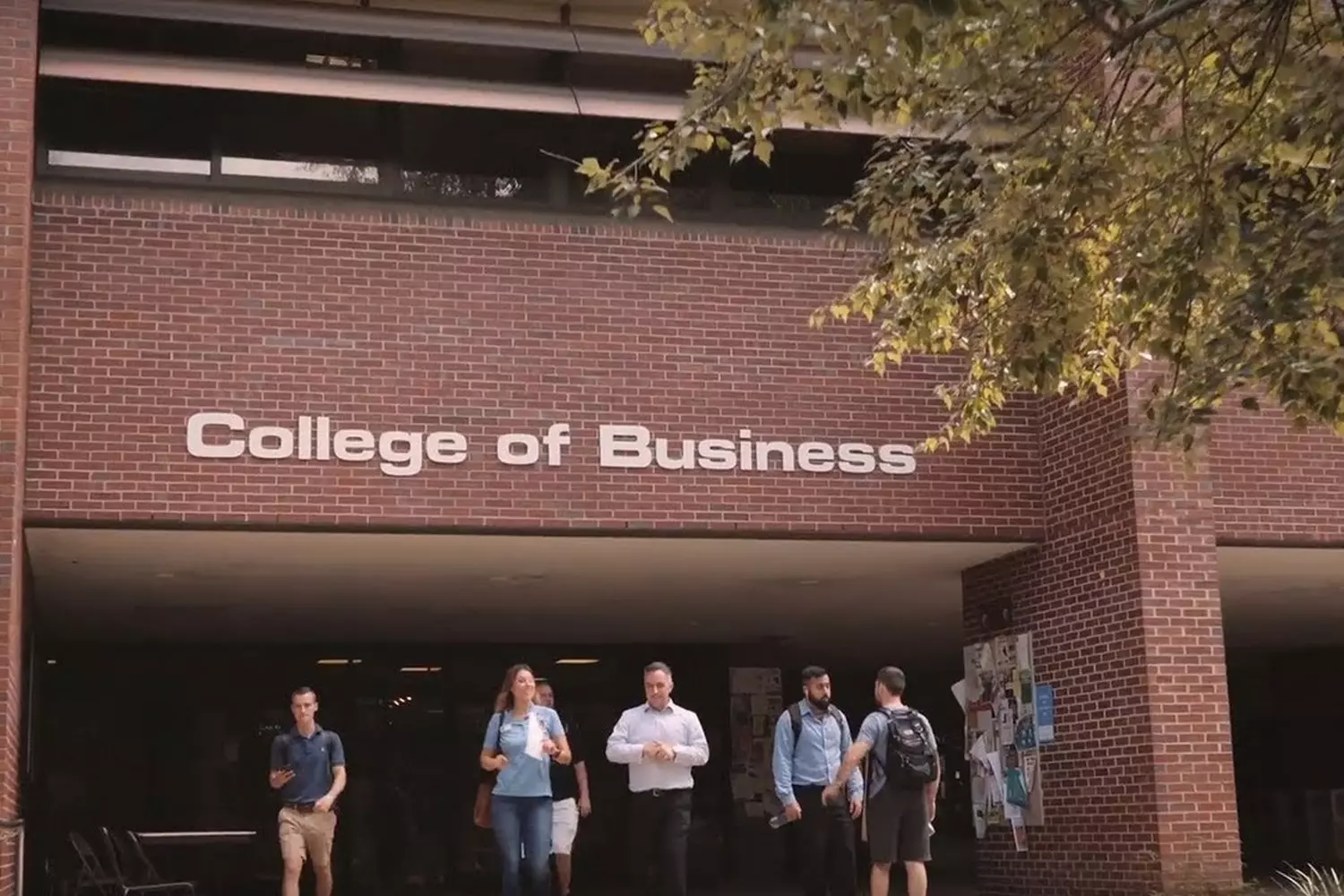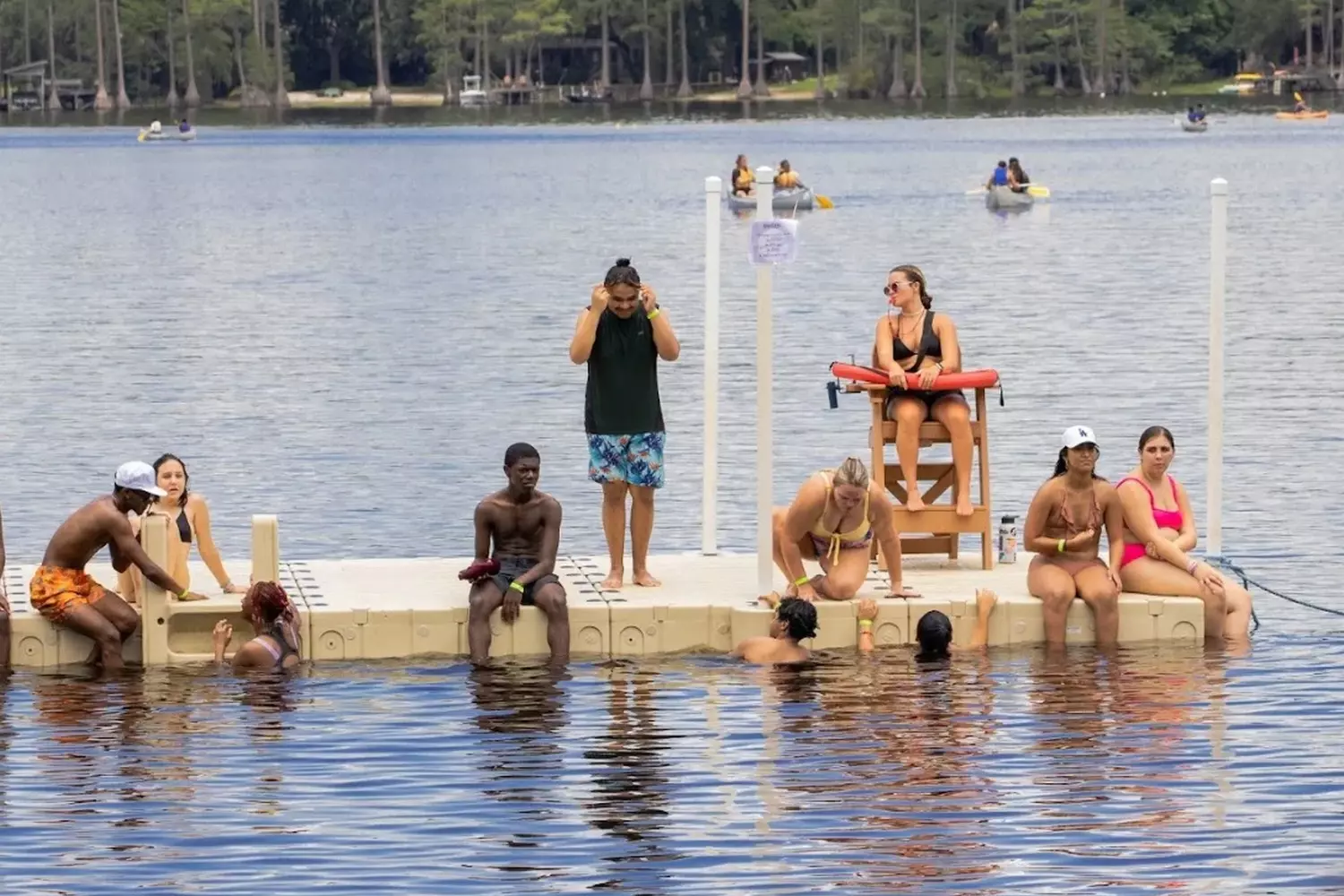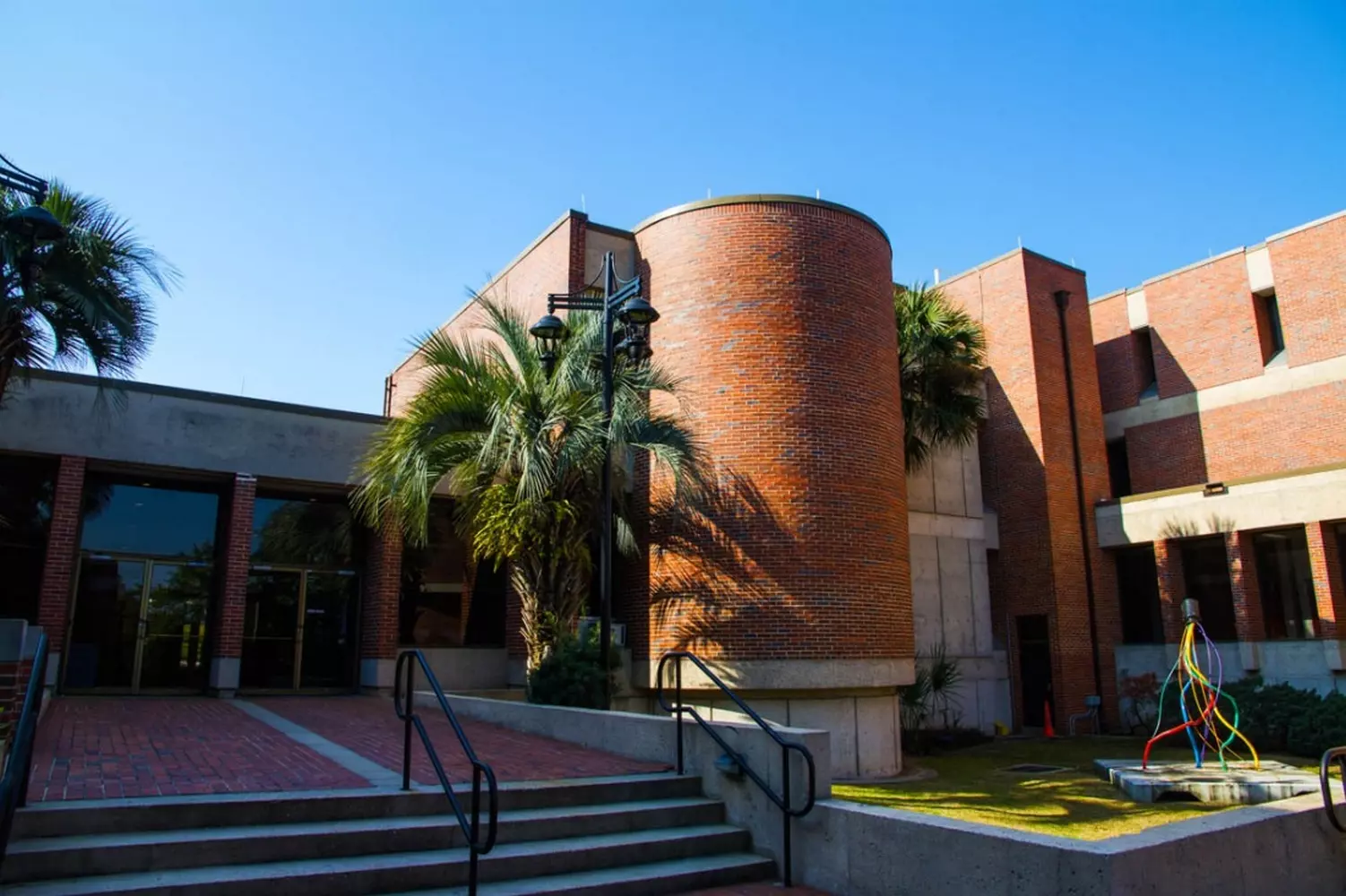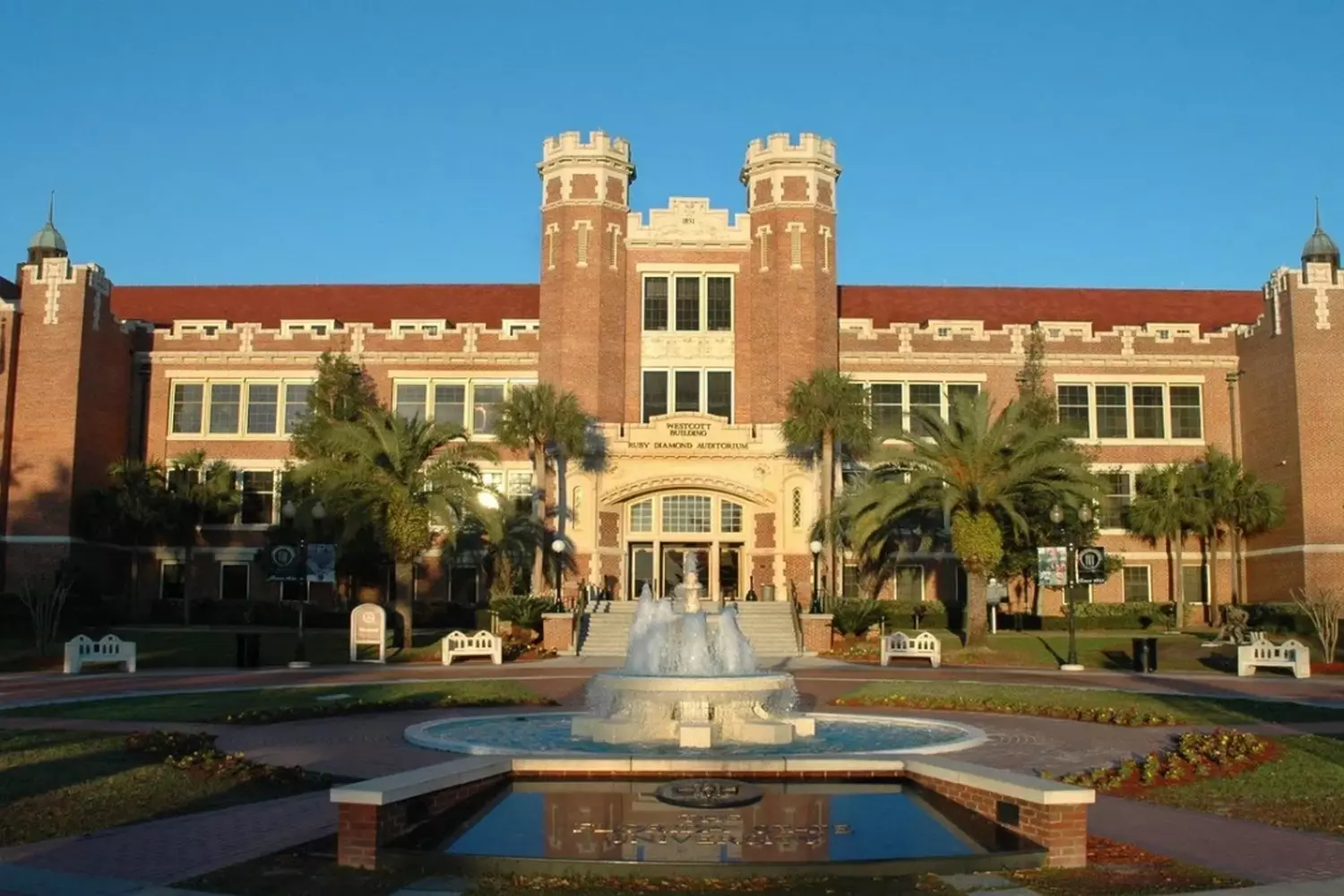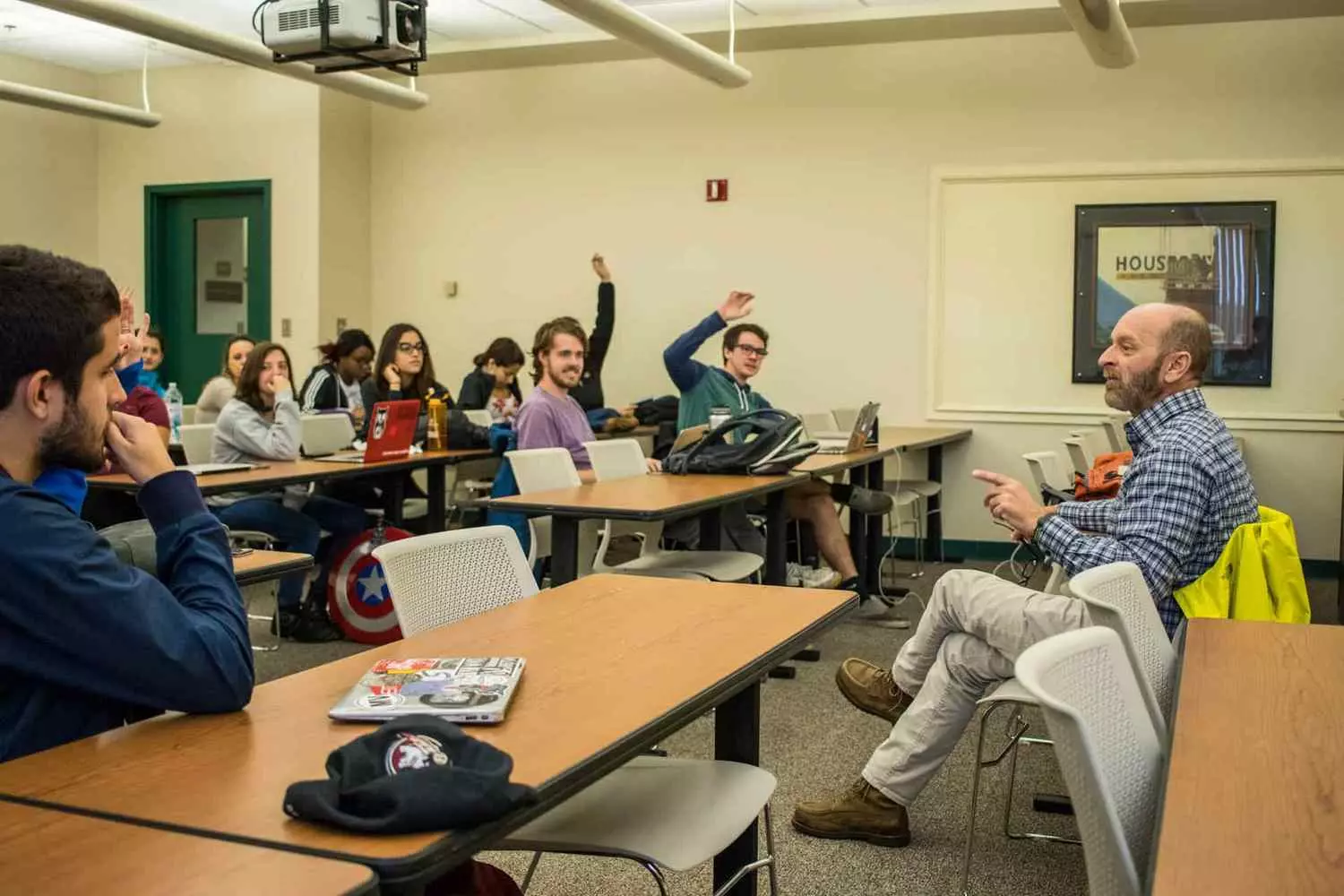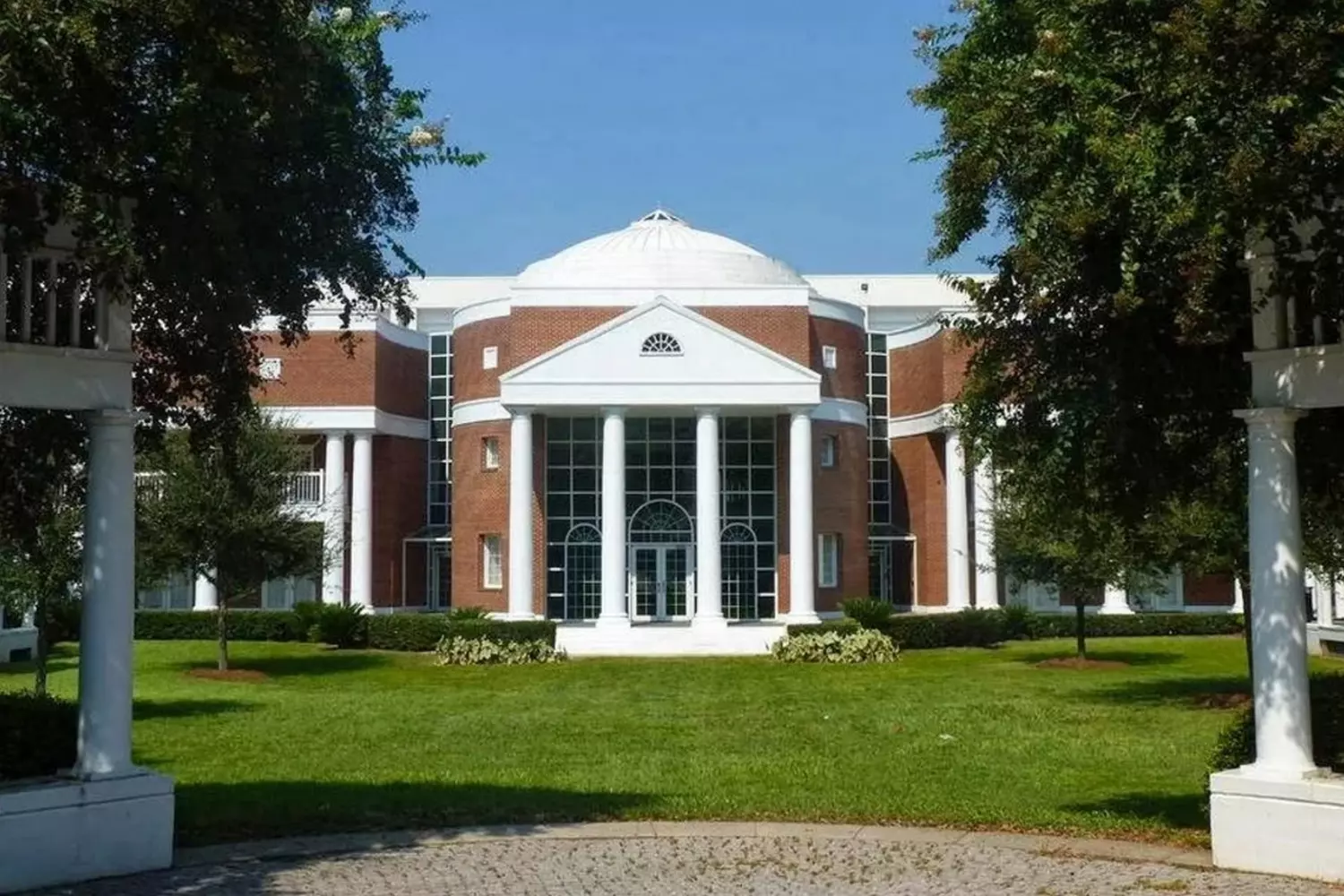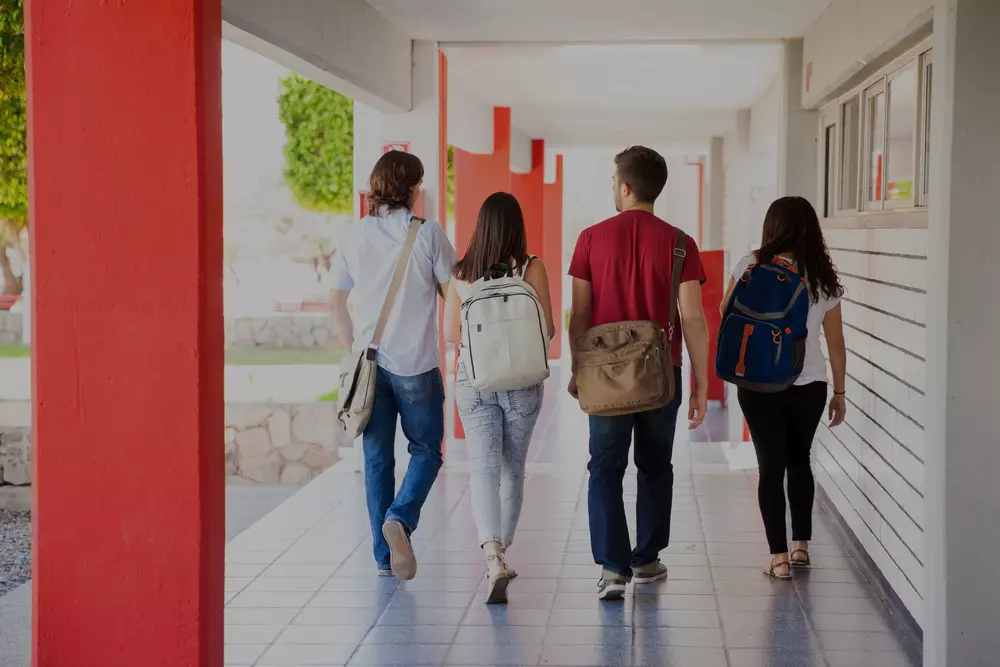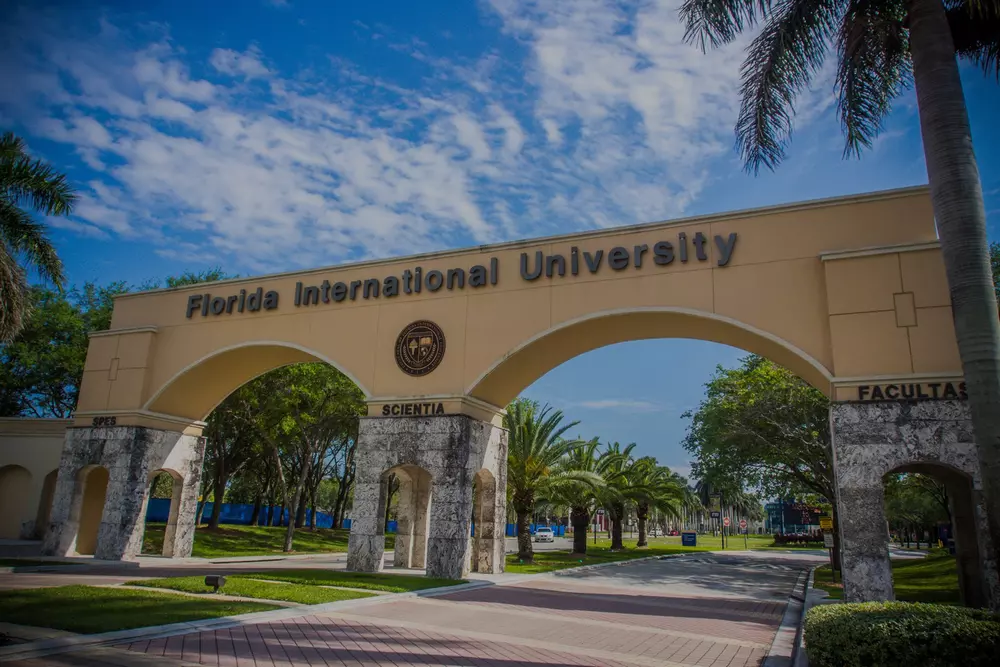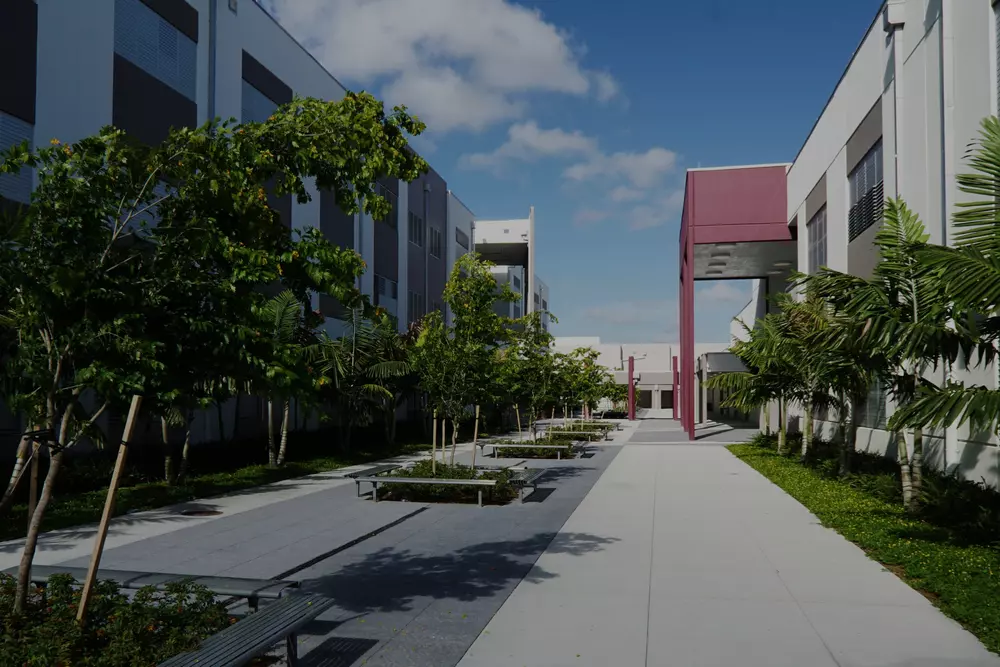Florida State University
Discover Academic Excellence and Dynamic Student Life at the University of Florida.

Florida State University
Every U.S. state has educational institutions that are a source of pride not only for locals but for the entire country. For Florida, such a symbol is Florida State University (FSU). It is more than a university in the traditional sense — it is a whole universe of knowledge, cultural initiatives, and scientific discoveries.
FSU is called a place where 19th-century traditions coexist with 21st-century cutting-edge technologies. You can walk through the alleys of the historic campus and, on the same day, visit laboratories where discoveries that change the world are being made. The university atmosphere blends history and innovation: the walls of the buildings remember the first seminaries of the mid-19th century, while modern classrooms are equipped to meet the standards of the world’s top research centers.
Florida State University offers:
- Prestigious education recognized by global rankings;
- A sprawling campus that feels like a city of its own;
- The opportunity to learn from top professors and work alongside world-class researchers;
- A vibrant student life where sports, arts, and startups go hand in hand with academics;
- Ranked 43rd among public universities in the U.S. by US News & World Report;
- When including private universities, FSU holds the 95th position;
- According to international rankings, the university consistently ranks among the top 200 universities in the world.
For prospective students, these rankings are more than numbers — they are a guarantee that an FSU diploma will carry significant weight in employment and career advancement.
FSU is called Florida’s national pride for a reason. It is a university where the future of science and culture is shaped, where new names emerge, and where every student has the opportunity not just to study, but to become part of something greater.
FSU has been the alma mater of many notable figures. Among its alumni are actress Faye Dunaway (Oscar winner, Academy Award), film star Burt Reynolds, world-class athletes, and politicians. The university truly prepares individuals who make a mark on the global stage.
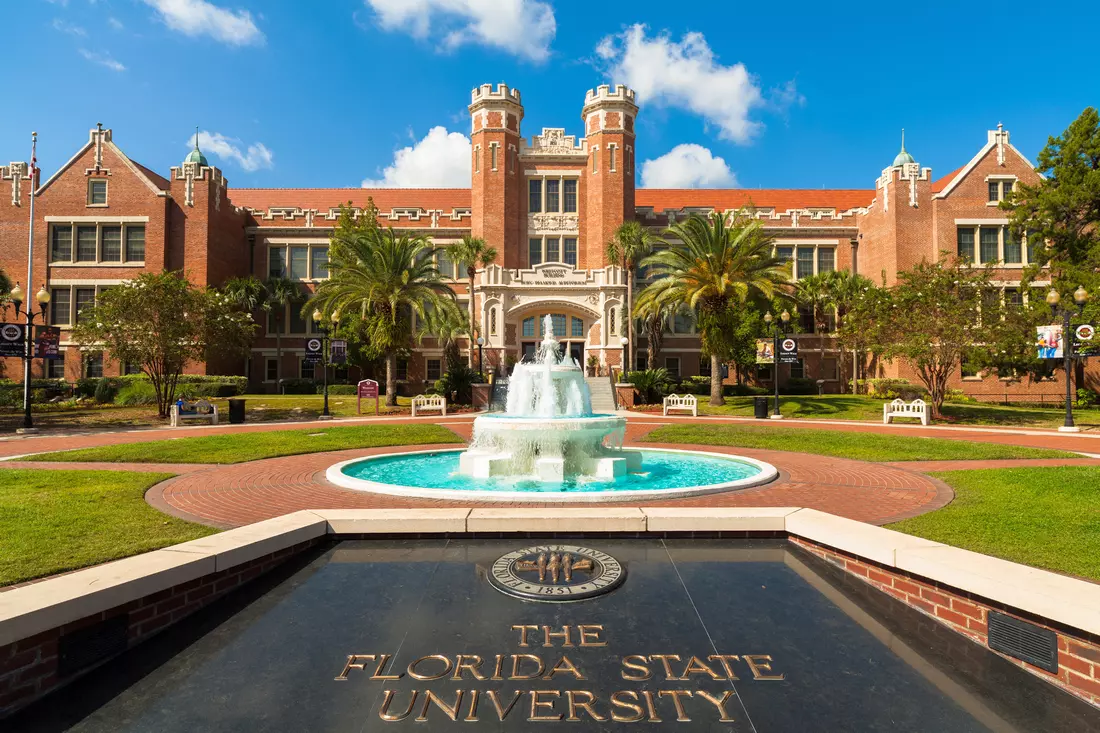
Florida State University is one of the few universities in the U.S. that has preserved traditions of women’s education. Some student organizations and programs still honor that history, making the university unique in its historical context.
A history spanning nearly two centuries
Florida State University traces its history back to 1851, a date considered the starting point not only for the university but for the entire higher education system in Florida. In the mid-19th century, in a young and still largely wild Florida, the goal was set to create educational institutions that could provide local youth with access to knowledge and supply the state with qualified specialists.
- 01. First steps — seminaries
On the territory of what would become Tallahassee, two seminaries were founded: one for men and one for women. Essentially, these were religious schools with a focus on humanities, teacher training, and spiritual education. However, they laid the foundation for the powerful university that would later emerge.
Even then, the seminaries aimed to go beyond standard education. Teachers sought to incorporate elements of practical science and prepare students for real life in a developing society. - 02. Transition to college
In the second half of the 19th century, the seminaries began expanding their curricula. In 1901, the women’s seminary was officially transformed into the Florida Female College. At that time, this was a breakthrough: education for women in the U.S. was just gaining popularity, and Florida took an important step forward in terms of equality.
Women were now able to study not only literature and pedagogy but also natural sciences, arts, and social disciplines. This decision became one of the first building blocks in creating FSU’s future reputation as a progressive and innovative institution. - 03. Birth of the university
In 1947, a historic event took place: the Florida Female College was transformed into Florida State University and became a coeducational institution. This was driven by the rapid growth in student numbers following World War II. Thousands of returning soldiers were able to study under the GI Bill, and universities across the country expanded rapidly.
FSU not only opened its doors to men but also significantly increased the number of faculties and programs. The university actively built new buildings, established research laboratories, and invited professors from other regions of the U.S. - 04. Science as a calling
Since the mid-20th century, FSU has increasingly focused on research and innovation. The first major laboratories, institutes, and research centers began to appear here.
- One of the first supercomputers was built within FSU, allowing the university to become a pioneer in computing technology.
- University scientists developed concepts for effective cancer treatments, earning worldwide recognition for FSU.
- In the 1980s–1990s, FSU actively participated in international projects, including research connected to the Large Hadron Collider in Switzerland.
- 05. Cultural development
FSU has always been not only a scientific but also a cultural center. Art galleries, museums, and theater studios were opened on campus. By the 1960s–1970s, FSU had become a place where science, art, and sports were combined, allowing students to find themselves in diverse fields. - 06. Today
Today, FSU is:
- One of the oldest universities in Florida, with nearly 175 years of history;
- An institution educating over 45,000 students from around the world;
- A research hub that receives tens of millions of dollars annually for scientific studies;
- A place that carefully preserves traditions while embracing innovation.
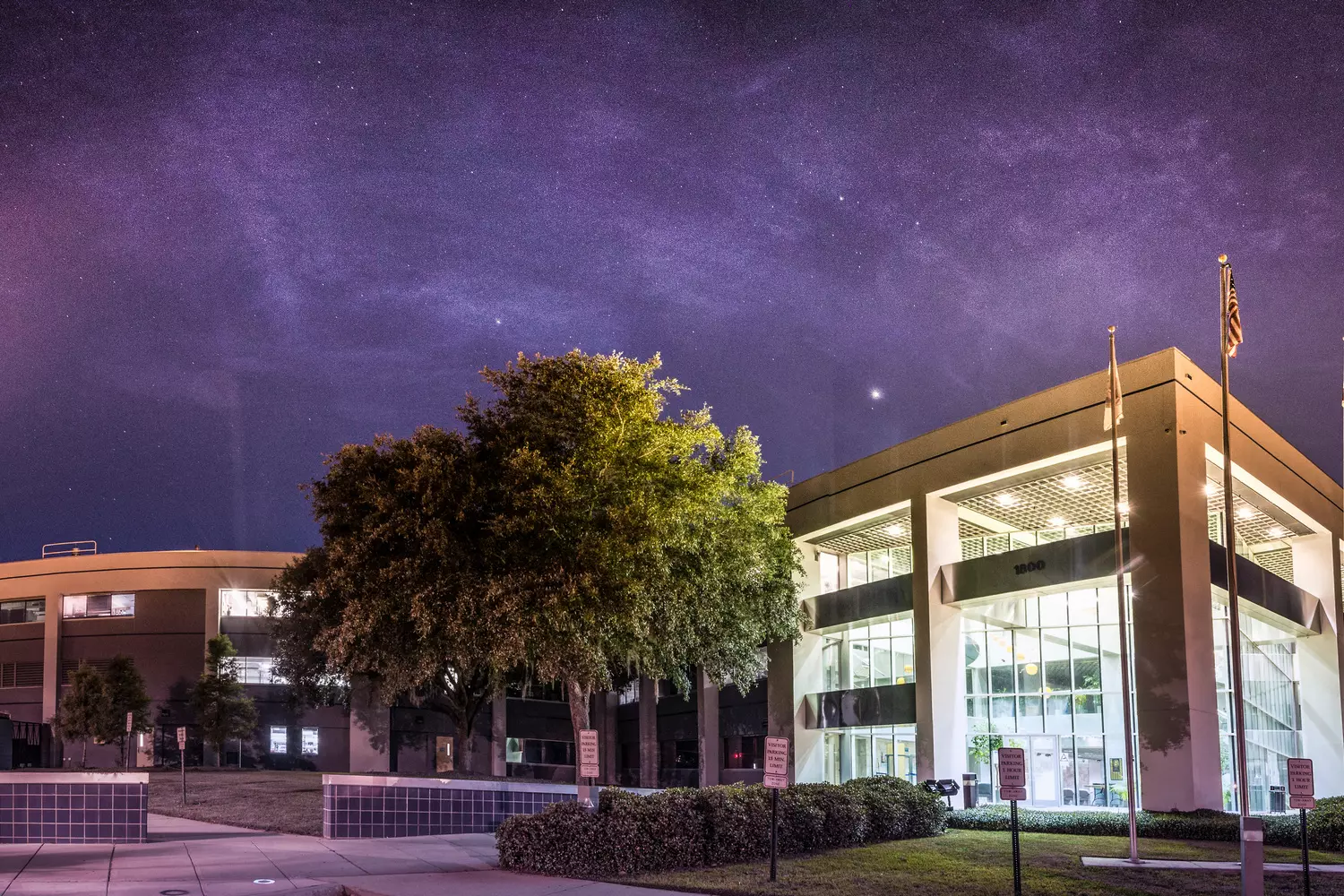
The FSU campus — a "city within a city" that lives its own life
The Florida State University campus in Tallahassee is more than just a collection of buildings around a few lecture halls. It’s a large, well-planned area where academics, research, sports, arts, and everyday student life are smartly integrated. The campus is designed to feel both intimate (with quiet corners for reading) and expansive (with sports arenas, research complexes, museums, and green lawns).
Below is a detailed overview of what makes up this “city” and how it functions internally.
- 01. Spatial structure and the “face” of the campus
FSU combines red-brick classic architecture with modern buildings. Large lawns stretch across the center of the campus — students sit with laptops, have picnics, attend festivals, and watch open-air movie screenings. One of the central landmarks is the Westcott Building, an architectural symbol recognizable for its Gothic features and large event hall. Westcott is the place to go if you want to feel the “history” of the university.
The campus is designed for easy navigation: clear “corridors” — main alleys connecting academic buildings — and “nodes” — squares and lawns where events take place. The architecture reflects its evolution: early 20th-century buildings stand alongside new laboratories and multimedia classrooms. - 02. Research infrastructure — where projects are born
FSU positions itself as a serious research university, with colleges, centers, institutes, and laboratories covering medicine, physics, engineering, humanities, and social sciences. Officially, the university supports dozens of centers and institutes — educational units that also serve as hubs for grant-based research, consortia, and interdisciplinary projects.
What does this offer students? Direct access to research projects, opportunities for on-campus internships, and sometimes funding for their own ideas. Many programs involve undergraduates in lab work from the start, giving them practical experience early on. - 03. National High Magnetic Field Laboratory — MagLab
One of the campus’s gems is the National High Magnetic Field Laboratory (MagLab). It’s not just a lab: it’s the world’s largest research center for high magnetic fields, attracting scientists globally. MagLab provides unique tools and opportunities for experiments in physics, materials science, biomedicine, and engineering. For FSU students, it’s a chance to engage with world-class research and see how lab results translate into industry and medicine. - 04. Libraries, museums, and cultural life
The campus is also a cultural hub. FSU manages an extensive library system, with collections ranging from legal literature to rare art and history archives. The university is connected with major museum projects (including collections outside Tallahassee), and the campus regularly hosts exhibitions, concerts, performances, and student productions. This cultural ecosystem provides students with:
- Regular access to exhibitions and lectures;
- Opportunities to participate in museum and gallery work;
- Spaces for practical training for students in art history, performing arts, and music programs.
- 05. Lake Bradford and recreation areas — the “green” side of campus
One distinctive area is Lake Bradford and the nearby Lakefront Park & Retreat Center. It’s more than just a scenic spot: in warm months, the lake becomes a hub for outdoor activities — kayaking, regattas, field trips, rope courses, and retreats. For many students, Lake Bradford is the main place to recharge after classes. The lake’s infrastructure is managed by Campus Recreation, offering equipment rentals and organized activities. - 06. Housing and residential communities
FSU offers various housing options: traditional dormitories with communal spaces, modern apartment complexes, themed and academic houses (residential colleges) where small student communities with shared interests form. Residences often host events, educational sessions, and club meetings, and entrances feature support services, package delivery, and project coordinators. - 07. Sports infrastructure and traditions
Sports are part of FSU’s identity. The campus features large arenas and stadiums, training facilities, and fitness centers; Seminoles football games draw crowds, and student competitions and fitness programs are available to almost everyone. This sports culture builds community spirit and plays a role in university life as both tradition and entertainment.
For example, Doak Campbell Stadium is a major sports venue and an integral part of university culture and celebrations; its renovations and configuration changes are often discussed in the media and among fans. - 08. Student services, transportation, and logistics
The campus is designed with “urban” logistics in mind: student support services (academic advising, international office, career center), a medical center and clinic, and cafeterias and coffee shops are all within walking distance. Transportation options include bike lanes, pedestrian paths, and internal transit — student buses and shuttles make it easy to move between distant buildings and sports facilities. - 09. Safety and daily support
FSU pays close attention to safety: campus police services are present, along with emergency alert systems and nighttime escort services. The university also provides health support, including a Student Health Center, counseling services, and preventive programs.
The campus is more than just a roof over your head and a place to study. It’s an environment that shapes learning styles, access to research, networking opportunities, and personal growth. When choosing a university, it’s important to consider not only rankings and faculties but also how the “city” you’ll live in is organized: whether there are labs accessible in your first year, recreation areas, infrastructure for sports and creativity, and support for international students — all of which make daily life comfortable and enriching.
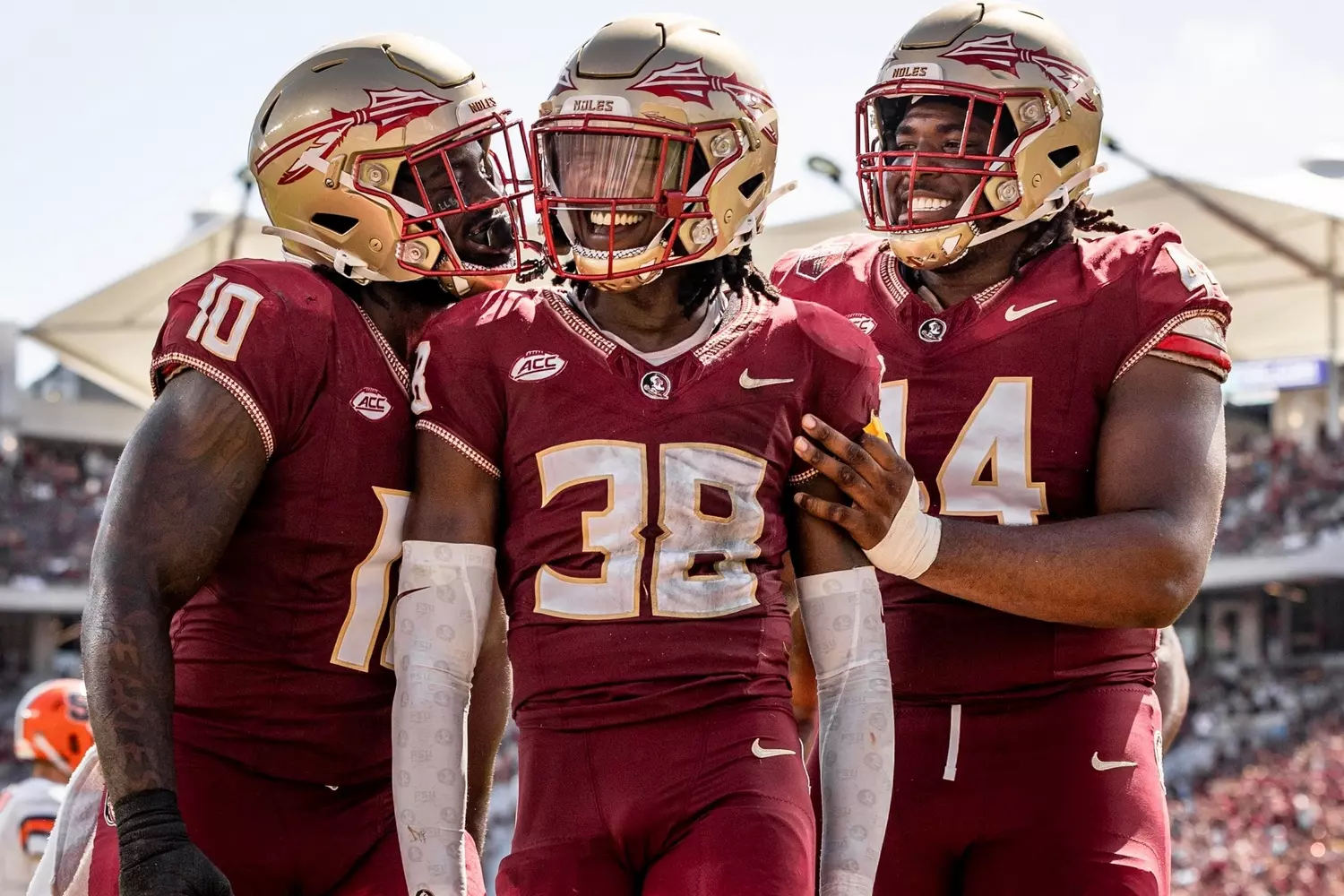
World-class research at FSU
Florida State University is more than just a place for lectures and exams. From its foundation, the university has positioned itself as a research center, and today it ranks among the leading U.S. institutions in terms of the scale and significance of scientific projects.
Here, bold global challenges are embraced — from studying the properties of magnetic fields to developing medical technologies of the future.
- 01. National High Magnetic Field Laboratory (MagLab)
FSU’s pride is the National High Magnetic Field Laboratory (MagLab), the world’s largest center for studying and applying ultra-strong magnetic fields.
- It houses a record-breaking 45-tesla magnet, the most powerful in the world for scientific research.
- Scientists use this facility for experiments in solid-state physics, chemistry, biology, and medicine.
- MagLab attracts researchers from around the world, providing students with a unique opportunity to participate in international projects.
Studies conducted at MagLab have contributed to the creation of new materials for quantum computers.
- 02. Participation in global projects: the Large Hadron Collider
FSU scientists have actively contributed to technologies for the Large Hadron Collider in Geneva. This involves not only theoretical models but also the development of instruments and technologies required for the particle accelerator.
For students and graduate students, this means opportunities to participate in research directly linked to some of the world’s major scientific discoveries, including the confirmation of the Higgs boson. - 03. Medicine and biotechnology
FSU holds a strong position in medicine and pharmaceuticals.
- University labs have worked on next-generation anti-cancer drugs.
- Research includes tissue regeneration methods and early disease diagnosis technologies.
- At the FSU College of Medicine, there is a focus on combining classical medicine with innovative approaches, such as using artificial intelligence for diagnostics.
- 04. Information technology and cybernetics
In IT, FSU actively works in artificial intelligence, machine learning, cybersecurity, big data, and supercomputing.
As early as the 20th century, FSU gained fame for creating one of the first supercomputers in the U.S., and this tradition of strong engineering and computational research continues today. - 05. Humanities and social sciences
FSU is not only about “hard” sciences. Significant research is conducted in psychology and neuroscience, history and cultural studies, political science, and sociology.
The university actively participates in government projects related to analyzing social processes and developing recommendations for the social and educational sectors of the U.S. - 06. Funding and grants
FSU receives tens of millions of dollars annually for research. Funding comes from U.S. federal agencies (such as the National Science Foundation), private companies interested in new technologies, and international organizations.
This allows the university to remain competitive and provide students with broad access to cutting-edge research.
Even undergraduates can participate in real projects and publish their first scientific papers. Students have the opportunity to work in teams collaborating with MIT, NASA, CERN, and other leading global centers. Access to advanced equipment, which is not available at every university worldwide, is provided.
FSU offers a chance not just to “study from textbooks” but to truly influence the future of science.
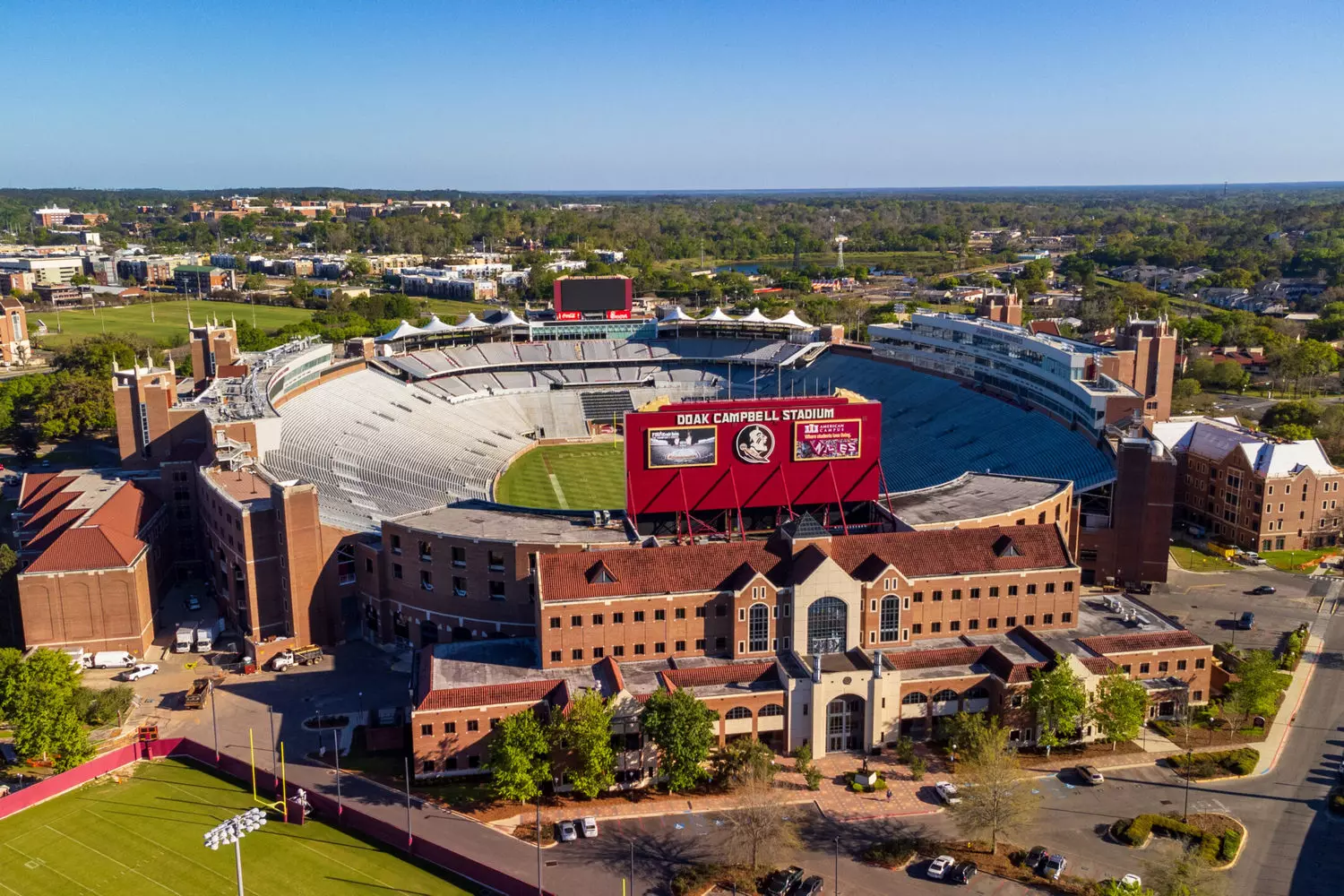
Education and Academic Programs at FSU
Florida State University is more than just a university — it is a true educational city where students can choose from over 360 programs across different levels:
- Bachelor’s
The classic four-year program that provides students with a solid education and practical skills. - Master’s
Advanced study for those who want to pursue a research or professional career. - Doctorate
The path for future scientists and experts aiming to conduct world-class research.
FSU places special emphasis on interdisciplinary studies: students can combine multiple fields of study, which is a huge advantage for their future careers.
- 01. Business and Management
One of the most prestigious faculties at FSU is the College of Business.
- Ranked among the top 20 business schools in the U.S. by U.S. News.
- Programs include finance, marketing, management, entrepreneurship, and analytics.
- FSU actively develops fintech and business analytics programs, focusing on the digital economy.
Graduates find employment in top corporations such as Deloitte, Amazon, JP Morgan Chase, IBM, and many start their own ventures.
- 02. Law
FSU’s College of Law is considered one of the best in the country, particularly in environmental and international law.
- Graduates work in courts, government agencies, and major law firms.
- Students have opportunities for internships directly in Florida’s legislative bodies, as the state capital is Tallahassee.
- The school actively collaborates with the judicial system and the state Congress.
- 03. Journalism and Media
FSU trains professionals in journalism, film, and media communications.
- The university is known for its Film School, often called a “mini-Hollywood.”
- Graduation projects filmed here have won Oscars.
- Students learn to work in production companies, TV and online media, mastering directing, screenwriting, and cinematography.
- 04. Applied Sciences and IT
IT programs are developed in collaboration with FSU research centers.
- Popular programs include cybersecurity, artificial intelligence, big data, and programming.
- The university emphasizes practical experience: students participate in real projects and internships with companies from Silicon Valley.
- MagLab’s research base also plays a key role, where IT and STEM students work on innovative projects.
- 05. Art and Design
FSU is one of Florida’s cultural centers.
- The College of Fine Arts offers programs in design, architecture, contemporary art, music, and theater.
- The university has its own theaters and galleries where students present their projects.
- Many graduates become well-known actors, musicians, and designers.
Interesting fact: according to FSU, students from 130 countries study here. This makes the educational environment truly international, and programs are flexible and oriented toward the global job market.
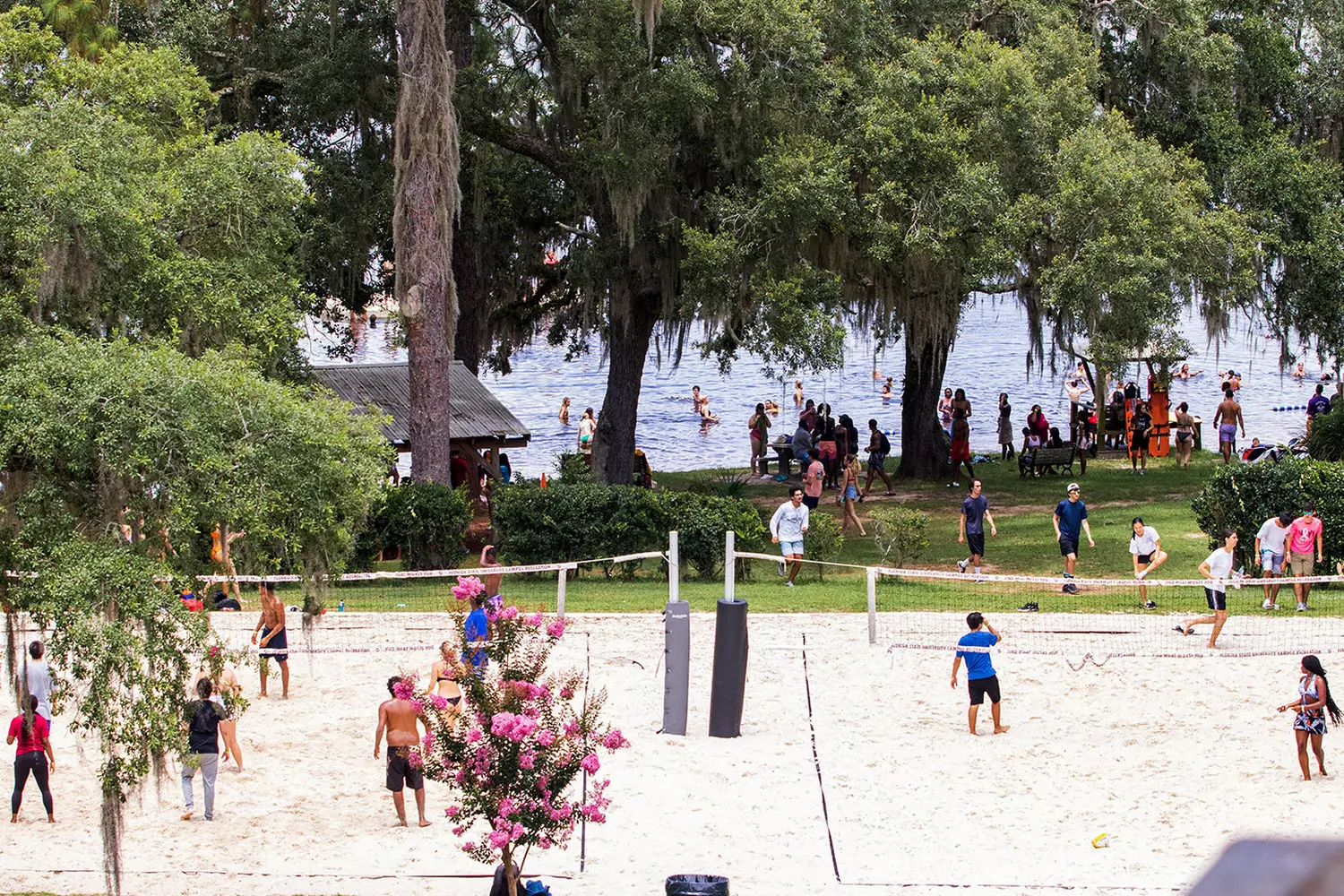
Arts and Culture at FSU: Where Science Meets Creativity
Florida State University is not only home to world-class laboratories and powerful research centers. The university is a true cultural hub of Florida, where students can engage with art in all its forms — from academic painting and theatrical performances to contemporary performance art and musical experiments.
- 01. Ringling Museum of Art in Sarasota: a window into world cultural heritage
One of FSU’s cultural “gems” is the Ringling Museum of Art in Sarasota.
- The collection features masterpieces by European masters, including Rubens, Veronese, and Tiepolo.
- It also houses Asian artifacts, ancient objects from Cyprus, and Middle Eastern exhibits.
- Special attention is given to contemporary American artists whose works bridge classical and modern trends.
- The museum is not only an art repository but also an educational center: FSU students can participate in exhibitions, work on curatorial projects, and complete internships.
The Ringling Museum of Art is the only museum in the U.S. that houses an entire series of massive Rubens paintings dedicated to the triumph of the Eucharist.
- 02. FSU Museum of Fine Arts in Tallahassee: inspiration close to campus
Located right on FSU’s main campus in Tallahassee is the FSU Museum of Fine Arts (MoFA).
- The museum’s collection includes over 6,000 works, from classical paintings to digital art.
- Annual student and alumni exhibitions give young artists the opportunity to showcase their work professionally.
- MoFA collaborates with international curators and artists, organizing temporary exhibitions and art residencies.
- The university emphasizes hands-on experience: students learn to work with collections, engage in restoration, and organize exhibition projects.
- 03. Theatre and Film: a mini-Hollywood on campus
FSU is proud of its School of Theatre and renowned College of Motion Picture Arts.
- Student theatrical performances take place on professional stages with audiences from across the city.
- The FSU Film School is one of the few in the U.S. fully funded by the university: students do not pay for equipment or studio use.
- Many FSU graduates work in Hollywood, and their thesis films have won Oscars in the short film category.
- 04. Music and Dance: the rhythm of student life
FSU has one of the oldest and most respected music colleges in the U.S. — the College of Music.
- World-class musicians study here: composers, conductors, and vocalists.
- Concerts by symphony orchestras, jazz ensembles, and chamber groups regularly take place on campus.
- The College of Dance is known for its innovative program: students study classical ballet, contemporary dance, performance art, and stage design.
- 05. Student cultural life
FSU ensures that culture and creativity are part of students’ daily life:
- The campus hosts galleries and art spaces where young artists can display their works;
- Regular festivals in film, music, and theater involve both students and guest artists;
- More than 40 creative clubs operate on campus: from orchestras and dance groups to film clubs and art studios.
Thus, FSU is not only a university where one can build a career in science, business, or IT, but also a place where every student can explore and develop their creative side.
FSU Architectural Symbols
Florida State University is famous not only for its research centers and laboratories but also for its impressive campus architecture. Many university buildings are constructed in a unified style, resembling old European universities more than a modern American campus. The most recognizable symbol of FSU is the Wescott Building.
- 01. Wescott Building: the heart of the university
- Historical significance
Built in 1910 and named after James D. Wescott, a major advocate for education in Florida. It is one of the oldest surviving buildings on campus and has been the official “face” of the university for over a century. - Architecture and style
The building is designed in neo-Gothic style, typical for early 20th-century academic architecture. Red brick, tall turrets, and narrow windows create a sense of solemnity and grandeur. The central entrance features massive arches and decorative carvings. At night, when lit up, the facade looks particularly impressive. - Modern use
Today, Wescott houses administrative offices, the large Ruby Diamond Auditorium with seating for over 1,100 people, and spaces for ceremonies, concerts, conferences, and lectures.
- 02. Ruby Diamond Auditorium: the campus cultural center
- Renovated in 2010, it is now considered one of the best concert halls in the southern U.S.
- Hosts symphony concerts, lectures by renowned professors and guests, student induction ceremonies, theater, and dance performances.
- Its excellent acoustics make it popular beyond the university: world-class musicians perform here.
- 03. Wescott-related traditions
- Taking photos at Wescott is a must for every student. Freshmen take their first-day pictures there, and graduates return for their diploma day photos.
- In front of the building is the Westcott Fountain. Students traditionally throw coins into the fountain in their first year, making a wish. On the night of the university’s birthday (January 24), the fountain becomes a hub for student celebrations.
- Wescott is not just a building — it is a true symbol of FSU’s unity and history.
Fun fact: According to legend, if a student shares their first kiss at Westcott Fountain, that love will last long and be happy.
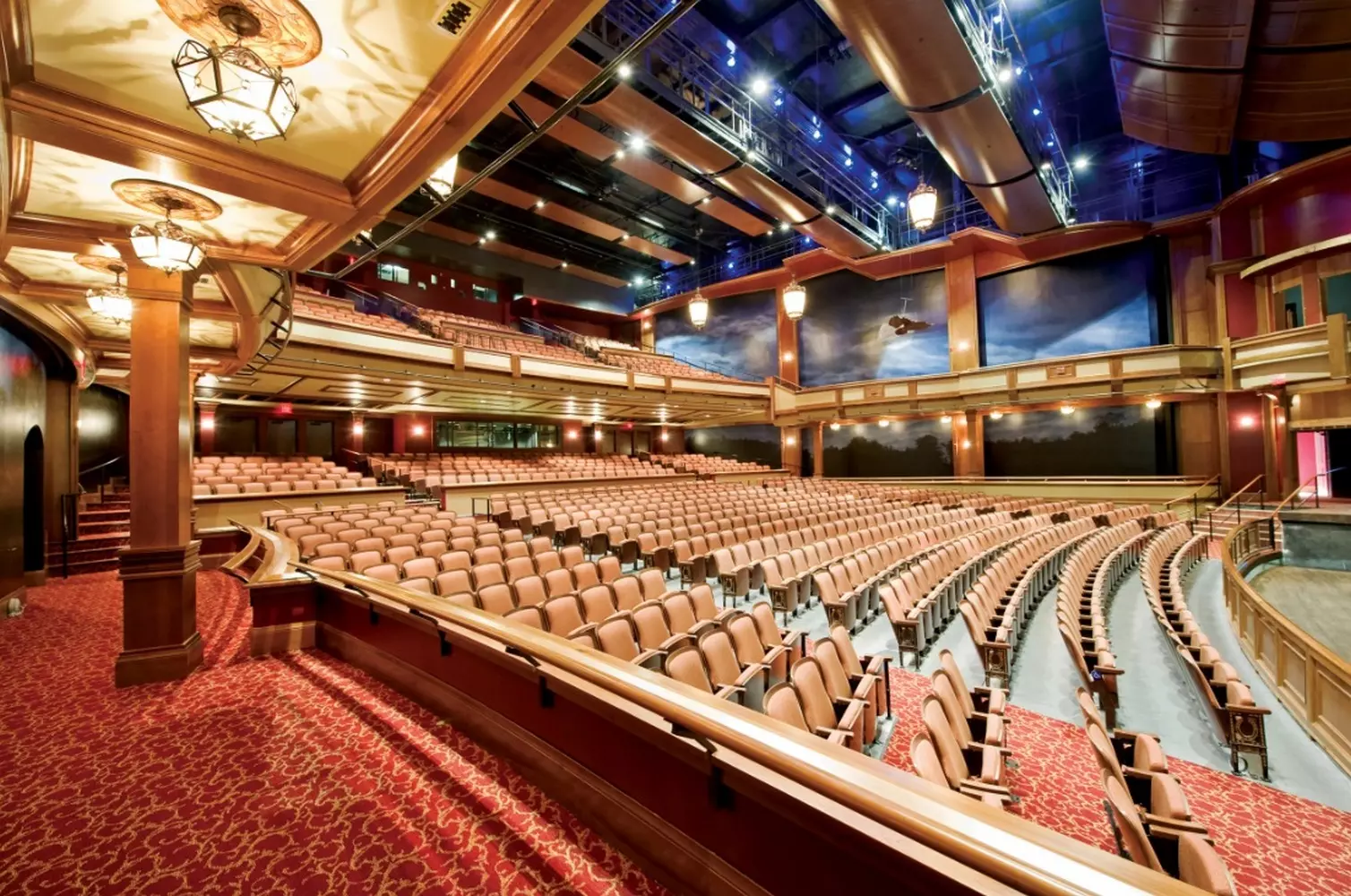
Open the Path to Success with American Butler
Florida State University is a place where students gain more than just a diploma — they gain life experience. Here, future scientists, artists, business leaders, and innovators are shaped. The university combines a rich history, modern technology, cultural diversity, and a friendly atmosphere.
If you are considering applying to one of the top universities in the U.S., FSU is an ideal choice. And remember: the path to an American university is easier with professional support. American Butler can help you:
- Organize an exploratory visit;
- Navigate the admissions process;
- Prepare and submit all necessary documents;
- Get ready for your move.
Don’t put your dream on hold — take the step toward studying at Florida State University with American Butler.
Information
Cost
-
Tuition
Undergraduate:
- In-State: ≈ $215.55 per credit hour
- Out-of-State / International: ≈ $771.66 per credit hour
Graduate:
- In-State: ≈ $479.32 per credit
- Out-of-State / International: ≈ $1,173.86 per credit
-
Application Fee
$30
-
First-year deposit
$200 (non-refundable)
-
On-Campus Housing
≈ $7,400-7,900
-
Study Materials and Books
≈ $800/год
| Tuition | Undergraduate:
Graduate:
|
| Application Fee | $30 |
| First-year deposit | $200 (non-refundable) |
| On-Campus Housing | ≈ $7,400-7,900 |
| Study Materials and Books | ≈ $800/год |












